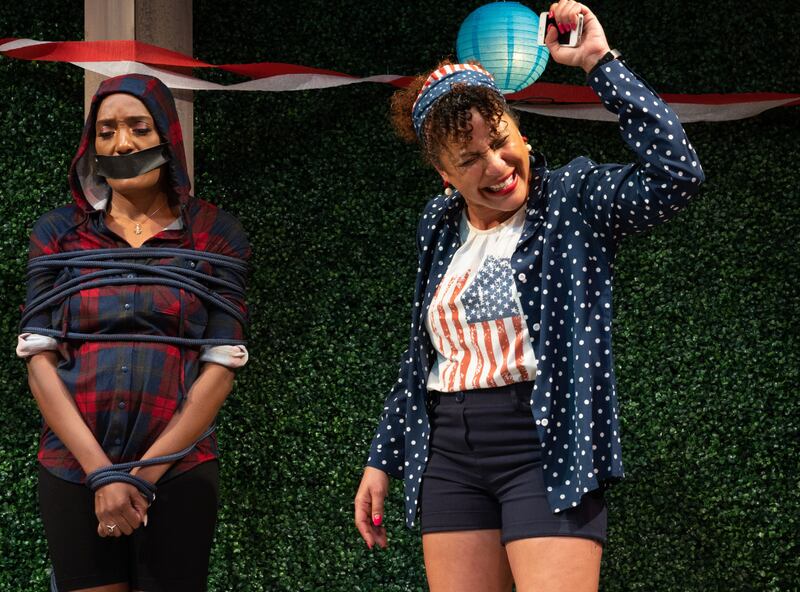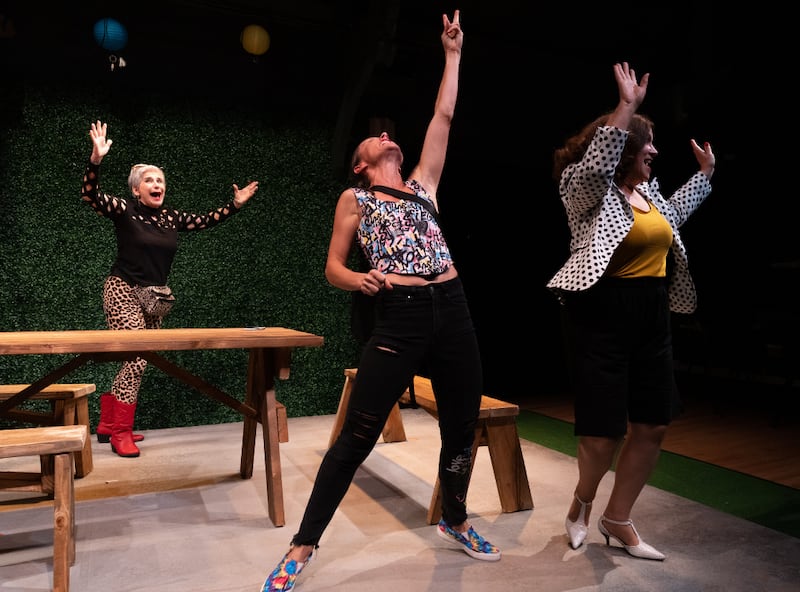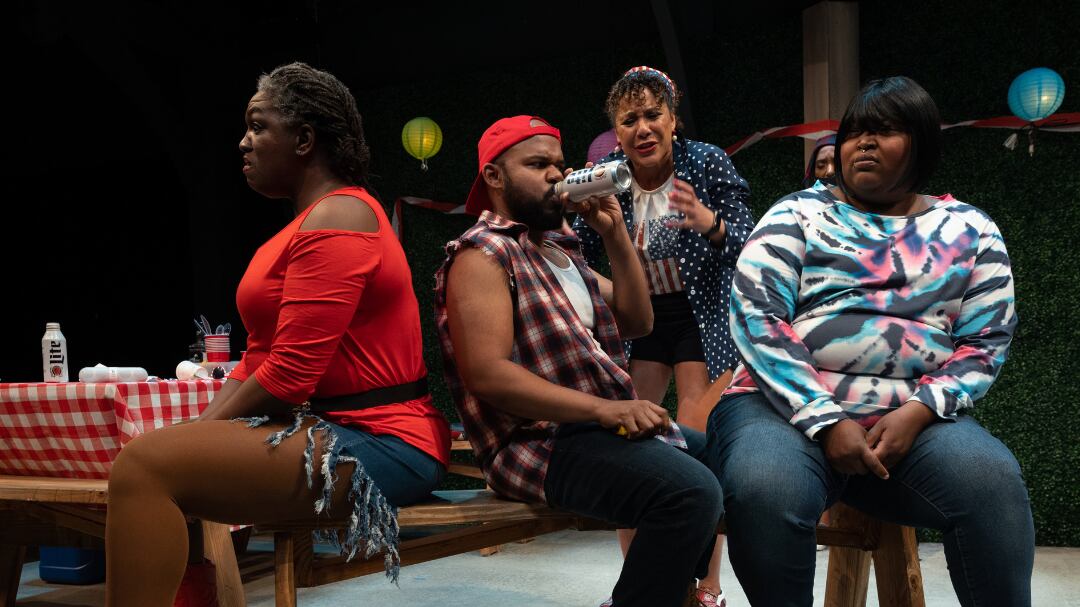Barbara’s family has a plan for her: She will get on a plane and fly to Halcyon Dreams, a rehabilitation clinic in Alaska. There she will be saved from the depths of drug addiction by the transcendent joys of yoga, a ropes course and equine therapy.
Or will she? Nothing is absolute in Barbecue, Robert O’Hara’s 2015 play about race, class and the slippery notion that is objective truth. By blending horrifying and hilarious familial dysfunction with a series of plot twists seemingly designed to fill M. Night Shyamalan with professional envy, O’Hara arguably created a new subgenre—the satirical, socially conscious mindbender.
It’s difficult to talk about Barbecue without detailing its delectable surprises, but it’s no spoiler to say that Portland Playhouse’s version is brilliantly cast and deftly directed by Patdro Harris. It’s a production so vibrant and vital that even playgoers who are aware of the story’s shocking finish will likely surrender to its strange and savvy magic.
Barbecue begins with a white family (Darius Pierce, Diane Kondrat, Nikki Weaver and Robin McAlpine) gathering at a park. At first, it looks like they’ve convened solely to devour burgers and sling insults at each other, but it is quickly revealed that the event is an intervention for Barbara (Dana Green), better known by her nickname, Zippity Boom.
Zippity Boom is not the only Barbara on the receiving end of a well-intentioned ambush. At the same park, a Black family (O’Neil Delapenha, Andrea White, Treasure Lunan and Ithica Tell) is preparing intervention for another drug addict named Barbara (Cycerli Ash). By this point, superhero fans in the audience will be shouting “Multiverse!” but the reality of what’s happening is simpler and more unsettling.
During the first act, the play nonchalantly shifts back and forth between the two sets of characters, refusing to acknowledge that there is anything odd about two families doing the exact same thing in the exact same place. Yet their paths eventually diverge in disturbing ways, inviting troubling questions about how they are different, aside from the color of their skin.
While the white characters in Barbecue speak crudely, the Black characters become downright violent. One brings a Taser to the intervention, a preventative measure that becomes unnecessary after Barbara is tied to a wooden post and gagged. Audiences could be forgiven for being offended, baffled or both, but the scope of O’Hara’s social commentary has yet to be revealed.

If Barbecue depicts racial stereotypes, it is so O’Hara can have the pleasure of demolishing them. As the true nature of the story comes into focus, seemingly innocuous details—like the confusion about whether Barbara is a cocaine addict or a meth addict—take on revelatory new meanings that enrich the play’s deconstruction of racism in America and the scourge of the opiate crisis.
While Barbecue consistently captures your mind and your funny bone in a vice grip, all the best scenes arrive pre-plot twist. There’s something immensely delightful about the actors knowing what’s going on while we’re flailing in the dark—they have the irresistible charm of people laughing at a deliciously private joke they can’t wait to share.
Tuning into the brash, bold spirit of O’Hara’s writing, all of the performers exaggerate their characters to hysterical effect—especially Delapenha and Green. Delapenha is a master of emphasis—he bellows the line, “Will you. Please. Go. To rehab?!?” with magnificently manic relish—and Green savors every syllable of Barbara’s over-the-top Southern accent, which turns the name “James T.” into “Jaemz Tee.”
The performances are also impressive because they capture O’Hara’s comedy writing without overshadowing his seriousness of purpose. Both the humor and the drama are given the room they need to breathe, allowing the play’s defining argument—that racism and classism are irrevocably intertwined—to resonate in the midst of a bustling plot.
Barbecue has plenty to say about who gets to speak and be heard in America and why, but it never becomes preachy or ponderous. As the image of painfully pink hamburger patties being cooked on a grill suggests, both O’Hara and Portland Playhouse want to offer us a robust artistic meal: entertainment with a brain.
SEE IT: Barbecue plays at Portland Playhouse, 602 NE Prescott St., 503-488-5822, portlandplayhouse.org/shows-events/barbecue. 7:30 pm Wednesday-Friday, 2 and 7:30 pm Saturday-Sunday. $32.50-$49.50.

